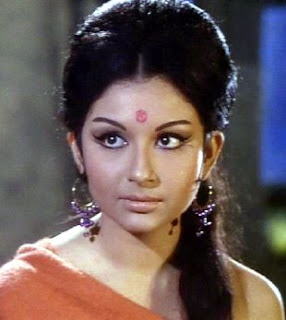
Aranyer Dinratri was Ray’s masterpiece.
Satyajit Ray experimented with classic literature of Sunil Ganguly to make the film Aranyer Dinratri in 1969. The film was based on the life of tribals of forest area in the region of Palamou and Daltongunge in Bihar.
It was Ray’s masterpiece. The film was related to the experience of four Bengali friends who went for a travelling experience in Palamou for few days. Soumitra Chatterji, Subhendu Chatterji, Samit Bhanja and Robi Ghosh were the four friends.
They met the family Pahari Sanyal who had a house in the forest region. The life of the tribals and the solitude attracted the friends and they started staying in the forest bunglow without the permission of the forest ranger. Pahari Sanyal’s daughter Sharmila Tagore fell in love with Soumitra Chatterji, while his daughter-in-law Kaberi Bose liked Subhendu Chatterji.
Samit Bhanja, a cricket player in the film was depressed about his girlfriend Aparna Sen in Kolkata and mixed with Simmi Garewal, a tribal girl. In fact it was the only film of Satyajit Ray where Simmi Garewal acted. He was beaten up by a local tribal, who he accused about stealing his purse. In fact his purse fell down in the house of Pahari Sanyal where he was playing badminton with Kaberi Bose, Subhendu Chatterji and Robi Ghosh.
They returned back after staying for few days. It was pity that Satyajit Ray could not make a coloured film in 1969, otherwise, the weird landscape of Daltongunge would have haunted the viewers. The nightlife in the tribal forest was very unique with the native people drinking a kind of desi alcohol and sleeping.
Goutam Ghosh got attracted with the film and made a sequel of it with the title Abar Aranye, few years back. He had to change the team, because although Soumitra Chatterji, Subhendu Chatterji and Samit Bhanja was alive, Robi Ghosh had died. Kaberi Bose also died in the late 70s. The film won a number of awards both nationally and internationally. The film Aranyer Dinratri should be preserved and restored.
Satyajit Ray experimented with classic literature of Sunil Ganguly to make the film Aranyer Dinratri in 1969. The film was based on the life of tribals of forest area in the region of Palamou and Daltongunge in Bihar.
It was Ray’s masterpiece. The film was related to the experience of four Bengali friends who went for a travelling experience in Palamou for few days. Soumitra Chatterji, Subhendu Chatterji, Samit Bhanja and Robi Ghosh were the four friends.
They met the family Pahari Sanyal who had a house in the forest region. The life of the tribals and the solitude attracted the friends and they started staying in the forest bunglow without the permission of the forest ranger. Pahari Sanyal’s daughter Sharmila Tagore fell in love with Soumitra Chatterji, while his daughter-in-law Kaberi Bose liked Subhendu Chatterji.
Samit Bhanja, a cricket player in the film was depressed about his girlfriend Aparna Sen in Kolkata and mixed with Simmi Garewal, a tribal girl. In fact it was the only film of Satyajit Ray where Simmi Garewal acted. He was beaten up by a local tribal, who he accused about stealing his purse. In fact his purse fell down in the house of Pahari Sanyal where he was playing badminton with Kaberi Bose, Subhendu Chatterji and Robi Ghosh.
They returned back after staying for few days. It was pity that Satyajit Ray could not make a coloured film in 1969, otherwise, the weird landscape of Daltongunge would have haunted the viewers. The nightlife in the tribal forest was very unique with the native people drinking a kind of desi alcohol and sleeping.
Goutam Ghosh got attracted with the film and made a sequel of it with the title Abar Aranye, few years back. He had to change the team, because although Soumitra Chatterji, Subhendu Chatterji and Samit Bhanja was alive, Robi Ghosh had died. Kaberi Bose also died in the late 70s. The film won a number of awards both nationally and internationally. The film Aranyer Dinratri should be preserved and restored.

















